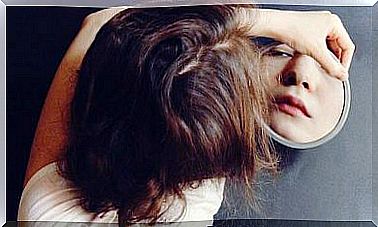Some Little Known Obsessions

According to its most classic definition, a mania is an excessive, sometimes extravagant concern for something in particular. This means that in popular culture being manic is associated with adhering to certain rigid guidelines and slightly resistant to change, but perfectly avoidable by willpower, without causing excessive anxiety. Today we talk about some widespread obsessions.
In general, a mania is not a problem if not a possible or minimal waste of time. But what if these worries turn into obsession?
It must be said that in colloquial language, words such as “mania”, “obsession” and “passion” are generally understood as synonyms (or almost synonyms). However, this synonymy is considered incorrect by psychology, since mania is an excessively euphoric mood condition, in the absence of reflection. Despite this, resorting to the parallelism between the words “mania” and “obsession” facilitates the understanding of the topic of our interest.
We can be obsessive or passionate about whatever happens to us. There is no one in the world who is exempt from being a little manic and, at any time, any of us could find ourselves adopting a ritual behavior.
Many obsessions are known and we know what they are called, for example melomania (obsession or visceral passion for music). Many others, however, are not known or we do not know how to give them a name. Let’s see some of them.

Discovering some little known obsessions
Glazomania
Glazomania is obsession, morbid passion, or an unusual fascination with writing lists. This obsession can be seen as a tool to be more efficient or even to lower stress levels as lists help organize.
Making a list makes the Glazomaniac feel organized, prepared for what’s to come. That said, it’s good to make a distinction between list aficionados and other disorders like OCD or obsessive-compulsive personality disorder.
Controlling the DOC subtype, certain delusions cause compulsive behaviors, in this case of verification, to lower anxiety levels. In this context, the use of lists can turn into a verification strategy capable of countering the compulsion. It occurs in the list if the task, for example “close the door”, is marked as “done”, instead of verifying in person.
According to the DSM-5, OCD consists of an excessive preoccupation with order, perfectionism and efficiency. Among the diagnostic criteria of this disorder there is the concern for details, for the rules, for the lists, for the organization … to the point of neglecting the main object of the activity (that is to say, the goal of same list).
Both of these disorders involve physical discomfort or deterioration in social, occupational, or other significant areas of life. This is where Glazomania, or List Pleasure, and OCD differ.
Drug addicts: obsession with the consumption of drugs
As its name indicates, pharmacomania is the obsession with taking drugs in situations where it is not necessary or for purposes for which a particular drug is not indicated. This concept can be associated with pharmacophilia (as opposed to pharmacophobia), which is the tendency or predisposition to take drugs.
Among the disorders that can be associated with this concept are hypochondria, as well as pain disorders and fibromyalgia. The tendency to take a drug ” because you never know” or “for preventive purposes” is in fact associated with analgesics among chronic pain sufferers.
In the case of hypochondria, the fear of suffering from a disease can lead to excessive consumption of drugs in order to preserve or improve a physiological function. An example can be that of the person who takes laxative drugs every day to ensure functional digestion and avoid the dreaded constipation.
Also in relation to hypochondria, the opposite attitude can also be noted: refusing to take medicines for fear of possible side effects.
Some obsessions associated with rest: catisomania and clinomania
This group includes various obsessions related to different aspects of rest, such as lying down, sitting or even sleeping.
Catisomania is the obsession with remaining seated. It is not the simple pleasure of sitting, but the irrepressible need to sit down. It can even lead to an elderly person or a pregnant woman taking a seat on public transport, sitting on the ground while queuing up, sitting in a dressing room in a shop, etc.
It should not be confused with clinomania, which is the obsession with lying down, nor with orthosomnia, the mania for perfect rest.
Tanorexia: obsession with tanning
Tanorexia is the obsessive need to have darker skin, or to be tanned. We could consider it an addiction or a subtype of body dysmorphic disorder.
People with tanorexia associate tanned skin with beauty and a fair complexion with a cosmetic defect. On top of that, they think they can’t live without UVA rays, which is why they constantly resort to tanning beds or spend whole days in the sun.
These are risky actions often without the use of adequate sunscreen and even applying tanning lotions that put skin health at risk.
The beneficial effects of sunlight on our health are well known; but prolonged exposure or without sunscreen increases the risk of suffering from various skin disorders. These can range from sunburn to sunburn, to skin cancer (or melanoma), through to premature aging of the skin.
Treatment of tanorexia
Treatment of tanorexia depends on the cause. It can be described as an addiction or a body dysmorphic disorder. Sunbaths can be done at certain times as a strategy to independently manage a seasonal depressive disorder.
We also know that sunlight stimulates the release of endorphins and causes a feeling of relaxation, well-being and euphoria. In addition to psychological treatment, therefore, other methods must be sought to increase the levels of these hormones in place of sunbathing; for example, exercising, listening to music, laughing, or eating.

Let’s reflect on some obsessions
The obsessions described here represent a small sample of the wide range of known manias. In general, they are not serious and should not be given more importance than they have. Actually having some obsessions or “being a bit manic” isn’t bad, as long as it doesn’t affect your daily activity and doesn’t cause anxiety.
We must avoid that those particularities that make us unique and special turn into damn unbearable manias. And this is possible in a simple way: by being flexible and tolerant.
A mania cannot make us overcome certain limits of coexistence or lead us to want to control the actions of others. If this happens, if a mania reduces our quality of life, we need to consult a professional.









